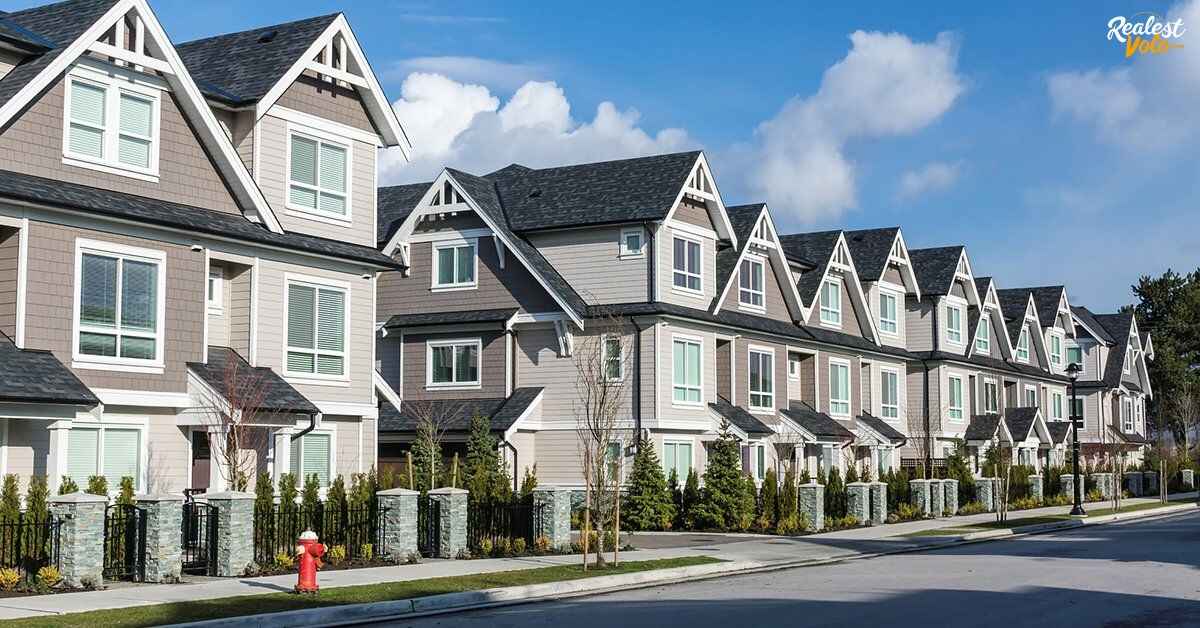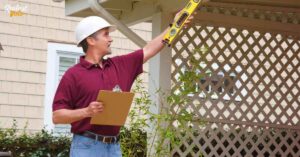Managing properties in densely populated urban areas presents unique challenges that require specialized knowledge and strategies. From navigating high-density living to addressing parking concerns, urban property managers must balance the needs of tenants, property owners, and local communities. In this comprehensive guide, we’ll explore the intricacies of urban property management and provide actionable insights to help you thrive in this dynamic environment.
The Fundamentals Of Urban Property Management
At its core, urban property management involves overseeing the day-to-day operations, maintenance, and financial aspects of residential, commercial, or multi-family properties situated in urban areas. While the fundamental principles of property management apply, urban settings demand a heightened level of expertise and attention to detail.
Successful urban property managers possess a unique skillset that includes:
- Communication: Effective communication is crucial when dealing with diverse tenant populations, vendors, and local authorities.
- Organization: Juggling multiple tasks and priorities requires exceptional organizational skills.
- Problem-solving: Urban environments often present unique challenges that demand creative problem-solving abilities.
- Legal knowledge: Familiarity with fair housing laws, zoning regulations, and local ordinances is essential.
Proactive maintenance and preventive measures are vital in urban settings to address potential issues before they escalate. Regular inspections, prompt repairs, and timely maintenance can help preserve the property’s condition and value while enhancing tenant satisfaction.
Building a Solid Management Strategy
Developing a comprehensive management strategy is the foundation for successful urban property management. This strategy should encompass various aspects, including:
Tenant Screening And Selection
Implementing thorough tenant screening processes is crucial to ensure a compatible and responsible tenant base. This involves conducting background checks, verifying income and employment, and assessing compatibility with the property’s rules and regulations.
Rent Collection and Accounting
Efficient rent collection and accounting practices are essential for maintaining a steady cash flow and financial stability. Leveraging online portals and automated systems can streamline this process while minimizing administrative burdens.
Complaint And Conflict Resolution
Proactively addressing tenant complaints and resolving conflicts is vital for fostering a positive living environment. Establishing clear communication channels and implementing fair and consistent policies can help mitigate potential issues.
Property Safety And Security
Ensuring the safety and security of tenants and their belongings should be a top priority. This may involve implementing access control systems, security cameras, and regular patrols, as well as collaborating with local law enforcement agencies.
Marketing And Occupancy Management
Effective marketing strategies and proactive occupancy management are essential for attracting and retaining tenants in urban areas with high competition. This may involve leveraging online platforms, social media, and targeted advertising campaigns.
Also Read: Real Estate Investing: What is a Cap Rate and Why is it Important?
Managing the Day-to-Day Operations
Successful urban property management requires a hands-on approach to day-to-day operations. Key aspects include:
- Routine Inspections and Maintenance Schedules: Implementing regular inspections and preventive maintenance schedules can help identify and address potential issues before they escalate, minimizing costly repairs and disruptions.
- Vendor Management and Contractor Oversight: Building a reliable network of vendors and contractors is crucial for efficient maintenance and repairs. Proper oversight and communication ensure high-quality work and timely completion of projects.
- Budgeting and Financial Management: Accurate budgeting and financial management are essential for controlling costs, maximizing profitability, and making informed decisions about capital improvements and investments.
- Technology Integration: Leveraging property management software, online portals, and digital tools can streamline operations, enhance communication with tenants, and improve overall efficiency.
The Role of Preventive Maintenance
Preventive maintenance plays a crucial role in urban property management, as it can help extend the lifespan of building systems, equipment, and common areas, ultimately reducing long-term costs.
By implementing regular maintenance schedules and addressing minor issues before they escalate, property managers can minimize downtime, improve energy efficiency, and ensure a well-maintained property that attracts and retains tenants.
Creating a Positive Tenant Experience
In urban settings, fostering a positive tenant experience is paramount for attracting and retaining reliable, long-term tenants.
Strategies to achieve this include:
Building A Sense Of Community
Organizing community events, facilitating tenant interactions, and encouraging open communication can help create a positive and inclusive living environment.
Enhancing Curb Appeal And Amenities
Well-maintained common areas, landscaping, and amenities (such as fitness centers, community rooms, or playgrounds) can significantly improve the overall appeal and desirability of the property.
Effective Communication Channels
Establishing clear and accessible communication channels (such as email, online portals, or tenant apps) ensures that tenants can easily voice their concerns, report issues, or receive important updates.
Tenant Turnover And Retention Strategies
Implementing strategies to minimize tenant turnover, such as offering incentives for lease renewals, addressing maintenance issues promptly, and fostering a positive community atmosphere, can help reduce vacancy rates and associated costs.
Also Read: Money6x Real Estate : Exploring Money6x’s Role In Real Estate Investment 2024
The Value Of Community Building
Creating a sense of community within an urban property can have a profound impact on tenant satisfaction and retention. By fostering positive interactions, organizing social events, and encouraging open communication, property managers can cultivate a welcoming and inclusive environment where tenants feel valued and connected.
Community building efforts can range from hosting monthly potlucks or game nights to establishing resident committees or tenant associations. These initiatives not only promote a positive living experience but also encourage tenants to take pride in their community and respect shared spaces.
Embracing Sustainability In Urban Property Management
As environmental concerns continue to grow, embracing sustainability has become increasingly important in urban property management. Implementing eco-friendly practices can not only benefit the environment but also attract environmentally conscious tenants and potentially reduce operational costs.
Energy Efficiency
Upgrading to energy-efficient appliances, lighting, and HVAC systems can significantly reduce energy consumption and utility costs. Additionally, leveraging renewable energy sources, such as solar panels or wind turbines, can further contribute to sustainability efforts.
Water Conservation
Implementing water-saving measures, such as low-flow fixtures, rainwater harvesting systems, and smart irrigation systems, can help reduce water consumption and associated costs.
Waste Management
Promoting recycling programs, composting initiatives, and proper waste disposal practices can minimize the environmental impact of urban properties and encourage responsible waste management among tenants.
Green Spaces And Landscaping
Incorporating green spaces, community gardens, and sustainable landscaping practices can enhance the property’s appeal while contributing to a healthier environment and promoting biodiversity.
Navigating Urban Property Management Challenges
Urban environments present unique challenges that require proactive strategies and innovative solutions.
Some common challenges include:
High-Density Living And Limited Space
Managing properties with high occupancy rates and limited common areas or amenities can be challenging. Effective space utilization, clear rules and regulations, and open communication with tenants are crucial.
Parking And Traffic Concerns
Limited parking availability and traffic congestion are common issues in urban areas. Implementing parking management strategies, encouraging alternative transportation options, and collaborating with local authorities can help mitigate these challenges.
Noise Complaints And Disturbances
With close proximity living, noise complaints and disturbances can be a frequent occurrence. Establishing clear noise policies, enforcing quiet hours, and promoting respectful behavior among tenants can help maintain a peaceful living environment.
Compliance With Local Ordinances And Regulations
Urban areas often have specific ordinances and regulations regarding property management, zoning, and building codes. Staying up-to-date and ensuring compliance is essential to avoid penalties and legal issues.
Addressing Parking Challenges
Parking is a common pain point in urban areas, and effective management strategies are crucial.
Some approaches to consider include:
- Implementing Permit Parking: Collaborating with local authorities to establish permit parking systems can help ensure that tenants have access to designated parking spots.
- Encouraging Alternative Transportation: Promoting the use of public transportation, carpooling, or bike-sharing programs can help reduce the demand for parking spaces.
- Utilizing Off-Site Parking Solutions: Partnering with nearby parking garages or lots can provide additional parking options for tenants and visitors.
- Smart Parking Technology: Implementing smart parking systems, such as mobile apps or sensors, can help optimize parking space utilization and provide real-time availability information.
By addressing parking concerns proactively, urban property managers can enhance tenant satisfaction, minimize potential conflicts, and ensure compliance with local parking regulations.
Case Study: Successful Urban Property Management in Action
To illustrate effective urban property management strategies, let’s explore a real-life case study:
The Willow Apartments, a 200-unit multi-family complex in a densely populated city, faced numerous challenges, including high tenant turnover, maintenance issues, and parking concerns.
The new management team implemented the following strategies:
- Conducted thorough tenant screening and background checks to ensure a compatible tenant base.
- Implemented an online portal for rent payments and maintenance requests, improving communication and efficiency.
- Established a dedicated maintenance team to address issues promptly and prioritize preventive maintenance.
- Collaborated with local authorities to implement a permit parking system, alleviating parking concerns.
- Organized monthly community events and a tenant appreciation program to foster a sense of community and improve retention.
The results were remarkable:
- Tenant satisfaction rates increased from 65% to 92% within the first year.
- Maintenance costs were reduced by 18% due to proactive measures and efficient vendor management.
- Occupancy rates improved from 78% to 96%, maximizing revenue and minimizing vacancies.
The new management strategies transformed our community. We now have a thriving, engaged tenant base and a well-maintained property that residents are proud to call home. – Sarah Johnson, Willow Apartments Resident
This case study highlights the significant impact that effective urban property management can have on tenant satisfaction, operational efficiency, and overall profitability.
Frequently Asked Question
What Are The Key Skills Needed For Successful Urban Property Management?
Communication, organization, problem-solving, legal knowledge.
How Can Property Managers Foster A Positive Tenant Experience In Urban Areas?
Build community, maintain amenities, establish communication channels, implement retention strategies.
What Strategies Can Help Address Parking Concerns In Urban Properties?
Permit parking, promote alternative transportation, off-site parking, smart parking tech.
How Can Urban Property Managers Ensure Compliance With Local Regulations?
Stay updated on ordinances, prioritize compliance to avoid penalties.
Why Is Preventive Maintenance Crucial In Urban Property Management?
Extends equipment lifespan, reduces costs, minimizes downtime, attracts tenants.
Final Words
Mastering urban property management requires a comprehensive approach that encompasses a wide range of skills, strategies, and best practices. By understanding the unique challenges of urban environments and implementing proactive measures, property managers can create positive living experiences for tenants while maximizing the value and profitability of the properties they oversee.
Successful urban property management involves building a solid management strategy, streamlining day-to-day operations, fostering a positive tenant experience, and proactively addressing challenges related to high-density living, parking concerns, noise disturbances, and compliance with local regulations.
Remember, investing in professional urban property management services can provide invaluable expertise, resources, and support, ensuring the long-term success and sustainability of your urban properties.














